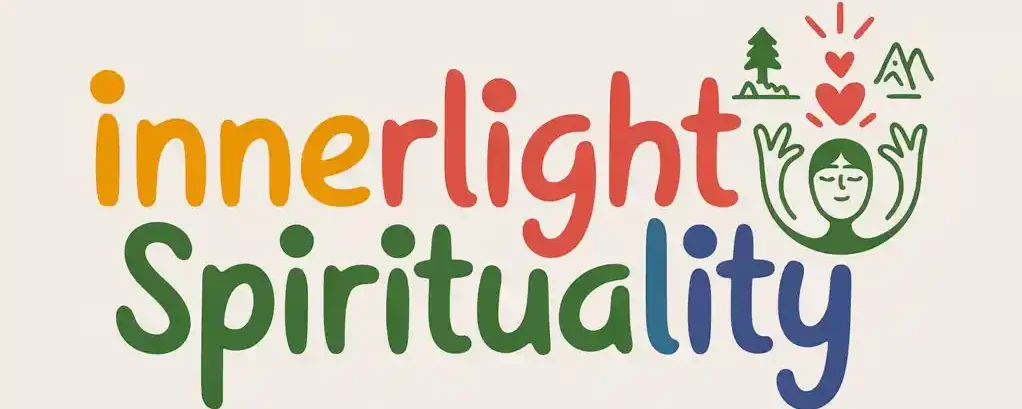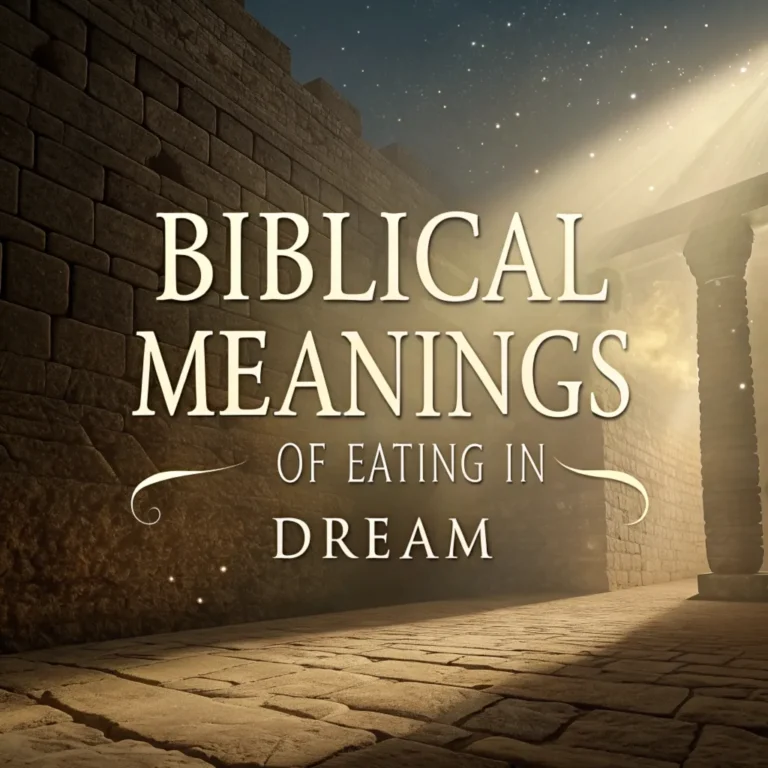17 Powerful Bible Verses on Forgiveness and Repentance: A Path to Spiritual Renewal
The Bible provides clear guidance on forgiveness and repentance. These concepts form the core of Christian faith and practice.
This post examines 17 key verses that reveal the transformative power of forgiving others and seeking God’s forgiveness.
These scriptures offer practical wisdom for those looking to experience spiritual renewal and improve their relationships.

Key Takeaways: The Essence of Forgiveness and Repentance
- Forgiveness is a divine command: God expects us to forgive others as He forgives us.
- Repentance leads to spiritual renewal: Turning away from sin opens the door to God’s blessings.
- God’s forgiveness is limitless: His mercy extends to all who sincerely repent.
- Forgiveness and repentance are interlinked: True repentance often results in forgiveness.
- Forgiving others benefits the forgiver: It frees us from bitterness and resentment.
- Repentance is an ongoing process: It involves continuous self-reflection and change.
- God’s forgiveness wipes the slate clean: He remembers our sins no more when we repent.
- Forgiveness does not always mean forgetting: It means choosing not to hold the offense against the offender.
- Repentance involves action: It requires turning away from sin and towards God.
- Forgiveness is a choice: It’s an act of will, not dependent on feelings.
Forgiveness and repentance form the foundation of spiritual growth in Christianity. These concepts are not just religious ideals but practical tools for personal development and relationship healing.
By embracing forgiveness and practicing repentance, believers can experience profound transformation in their lives, relationships, and communities.
The journey of forgiveness and repentance is ongoing. It requires commitment, humility, and a willingness to change. As we explore these Bible verses, we’ll gain deeper insights into how to apply these principles in our daily lives.
Understanding Forgiveness Through Scripture
Forgiveness forms a cornerstone of Christian faith. The Bible provides clear guidance on its importance and practice.
Ephesians 4:32 – The Model of Divine Forgiveness
“Be kind and compassionate to one another, forgiving each other, just as in Christ God forgave you.”
This verse emphasizes the connection between God’s forgiveness and our duty to forgive others. It serves as a reminder that our forgiveness should mirror the divine example.
Matthew 6:14 – The Reciprocal Nature of Forgiveness
“For if you forgive other people when they sin against you, your heavenly Father will also forgive you.”
This teaching from Jesus highlights the reciprocal nature of forgiveness. Our willingness to forgive others directly impacts our own forgiveness from God.
Colossians 3:13 – Forgiveness as a Christian Virtue
“Bear with each other and forgive one another if any of you has a grievance against someone. Forgive as the Lord forgave you.”
Paul’s words to the Colossians underscore forgiveness as an essential Christian virtue, rooted in God’s forgiveness of us.
The practice of forgiveness can be challenging, especially when faced with deep hurts. It requires a conscious decision to release resentment and choose love. By studying these verses, we can gain strength and inspiration to forgive even in difficult circumstances.
Forgiveness is not a one-time event but a process. It often involves ongoing work to maintain a forgiving attitude and resist the temptation to hold grudges.
The Power of Repentance in Biblical Context

Repentance goes hand in hand with forgiveness in the Bible. It involves a change of heart and direction towards God.
Acts 3:19 – Repentance and Spiritual Refreshing
“Repent, then, and turn to God, so that your sins may be wiped out, that times of refreshing may come from the Lord.”
This verse links repentance with spiritual renewal, promising a fresh start for those who turn back to God.
2 Chronicles 7:14 – National Repentance and Healing
“If my people, who are called by my name, will humble themselves and pray and seek my face and turn from their wicked ways, then I will hear from heaven, and I will forgive their sin and will heal their land.”
This well-known verse extends the concept of repentance to a national level, promising divine healing and forgiveness.
Repentance is a powerful act that can bring about profound change in individuals and societies. It involves acknowledging wrongdoing, feeling genuine remorse, and making a committed effort to change.
Through repentance, we open ourselves to God’s transformative power and experience His forgiveness and renewal.
The process of repentance often requires courage and humility. It means facing our faults and taking responsibility for our actions.
Forgiveness in Jesus’ Teachings

Jesus frequently spoke about forgiveness, making it central to His message.
Luke 6:37 – The Principle of Non-Judgment
“Do not judge, and you will not be judged. Do not condemn, and you will not be condemned. Forgive, and you will be forgiven.”
Jesus teaches that forgiveness and non-judgment are interconnected, emphasizing a compassionate approach to others.
Matthew 18:21-22 – Unlimited Forgiveness
“Then Peter came to Jesus and asked, ‘Lord, how many times shall I forgive my brother or sister who sins against me? Up to seven times?’ Jesus answered, ‘I tell you, not seven times, but seventy-seven times.'”
This exchange illustrates Jesus’ teaching on unlimited forgiveness, challenging the human tendency to limit mercy.
Jesus’ teachings on forgiveness reveal its central role in Christian life. His parables and direct instructions consistently emphasize the importance of extending forgiveness to others, just as God forgives us.
This radical approach to forgiveness challenges us to go beyond our natural inclinations and embrace a higher standard of love and mercy.
The concept of unlimited forgiveness can be challenging to grasp and implement. It requires a deep understanding of God’s grace and a commitment to reflect that grace in our relationships.
Old Testament Perspectives on Repentance
The Old Testament provides rich insights into the nature of repentance.
Proverbs 28:13 – The Blessing of Confession
“Whoever conceals their sins does not prosper, but the one who confesses and renounces them finds mercy.”
This proverb highlights the importance of acknowledging and turning away from sin to receive divine mercy.
Joel 2:13 – The Heart of True Repentance
“Rend your heart and not your garments. Return to the Lord your God, for he is gracious and compassionate, slow to anger and abounding in love.”
Joel emphasizes that true repentance is an internal change, not merely an external show.
The Old Testament’s teachings on repentance lay the foundation for understanding this concept in Christian faith.
These passages reveal that repentance is not just about feeling sorry for wrongdoing, but about a genuine change of heart and behavior. The prophets consistently called people to turn back to God with sincerity and humility.
Repentance in the Old Testament is often linked with restoration and renewal, both for individuals and for the nation of Israel.
New Testament Teachings on Repentance
The New Testament further develops the concept of repentance in light of Christ’s coming.
Mark 1:15 – Jesus’ Call to Repentance
“The time has come,” he said. “The kingdom of God has come near. Repent and believe the good news!”
Jesus’ first recorded message in Mark’s gospel centers on repentance as a response to God’s kingdom.
Acts 2:38 – Repentance and Baptism
“Peter replied, ‘Repent and be baptized, every one of you, in the name of Jesus Christ for the forgiveness of your sins. And you will receive the gift of the Holy Spirit.'”
This verse links repentance with baptism and the reception of the Holy Spirit, outlining a path of Christian initiation.
The New Testament expands on the concept of repentance, connecting it closely with faith in Christ and the coming of God’s kingdom.
Repentance is presented not just as turning away from sin, but as a complete reorientation of life towards God. It becomes a key part of the gospel message, inviting people to a new life in Christ.
Repentance in the New Testament is often accompanied by joy and the promise of new life, rather than being solely focused on sorrow for sin.
God’s Perspective on Forgiveness and Repentance
The Bible reveals God’s heart towards those who seek forgiveness and repent.
Psalm 32:1 – The Blessedness of Forgiveness
“Blessed is the one whose transgressions are forgiven, whose sins are covered.”
This psalm expresses the joy and relief that come with experiencing God’s forgiveness.
2 Peter 3:9 – God’s Patience in Waiting for Repentance
“The Lord is not slow in keeping his promise, as some understand slowness. Instead he is patient with you, not wanting anyone to perish, but everyone to come to repentance.”
Peter reveals God’s desire for all to repent, explaining His patience in bringing about final judgment.
God’s perspective on forgiveness and repentance is characterized by grace and patience. These passages reveal a God who eagerly desires reconciliation with His creation.
He is not quick to judge but gives ample opportunity for people to turn back to Him. This divine patience and willingness to forgive serve as a model for human relationships.
The joy of forgiveness and the relief of repentance are themes that run throughout Scripture, highlighting the positive nature of these acts.
Practical Applications of Forgiveness
The Bible provides practical guidance on how to apply forgiveness in daily life.
Luke 17:3 – Forgiveness and Accountability
“So watch yourselves. If your brother or sister sins against you, rebuke them; and if they repent, forgive them.”
This verse balances forgiveness with accountability, suggesting a process of addressing wrongdoing and extending forgiveness upon repentance.
Matthew 5:23-24 – Reconciliation Before Worship
“Therefore, if you are offering your gift at the altar and there remember that your brother or sister has something against you, leave your gift there in front of the altar. First go and be reconciled to them; then come and offer your gift.”
Jesus teaches the priority of reconciliation in the life of a believer, even over religious observances.
Applying forgiveness in daily life requires wisdom and discernment. These verses provide practical steps for addressing conflicts and seeking reconciliation.
They emphasize the importance of honest communication, accountability, and the willingness to take initiative in repairing relationships. Forgiveness is presented not just as a feeling, but as an active process that may involve confrontation and reconciliation.
The priority given to reconciliation in these teachings underscores its importance in the Christian life, even above certain religious practices.
The Transformative Power of Forgiveness and Repentance
Embracing forgiveness and repentance can lead to profound personal and spiritual transformation.
Romans 2:4 – God’s Kindness Leads to Repentance
“Or do you show contempt for the riches of his kindness, forbearance and patience, not realizing that God’s kindness is intended to lead you to repentance?”
Paul reveals that God’s kindness is meant to inspire repentance, highlighting the gentle nature of God’s approach to sinners.
1 John 1:9 – The Faithfulness of God in Forgiveness
“If we confess our sins, he is faithful and just and will forgive us our sins and purify us from all unrighteousness.”
This verse assures believers of God’s faithfulness in forgiving confessed sins, emphasizing the reliability of divine forgiveness.
The transformative power of forgiveness and repentance extends beyond spiritual realms into psychological and emotional well-being. These acts can free individuals from the burden of guilt, resentment, and bitterness.
They open the door to healing, restoration of relationships, and personal growth. By embracing forgiveness and practicing repentance, individuals can experience a profound sense of freedom and renewal.
Forgiveness and repentance work together to bring about holistic transformation, affecting not just our relationship with God but also our relationships with others and our view of ourselves.
FAQs About Forgiveness and Repentance
What is the difference between forgiveness and repentance?
Forgiveness involves releasing someone from the guilt of an offense, while repentance involves turning away from sin and towards God. Both are crucial in the Christian faith, with forgiveness often being the response to genuine repentance.
Does forgiveness mean forgetting the offense?
Forgiveness does not necessarily mean forgetting the offense. It means choosing not to hold the offense against the offender and releasing any desire for revenge. The memory may remain, but the sting of the offense is removed through forgiveness.
How many times should we forgive others?
Jesus taught that we should forgive others limitlessly. In Matthew 18:22, He instructs Peter to forgive “seventy-seven times,” symbolizing unlimited forgiveness.
Can we receive God’s forgiveness without repenting?
While God’s love is unconditional, the Bible teaches that repentance is necessary for receiving forgiveness. Acts 3:19 clearly links repentance with the forgiveness of sins.
How can I forgive someone who doesn’t ask for forgiveness?
Forgiving someone who hasn’t asked for forgiveness can be challenging but is still important. It frees you from bitterness and reflects God’s unconditional love. Pray for the strength to forgive, and remember God’s forgiveness towards you.

Samantha is the author of Inner Light Spirituality, where she shares insights and guidance to inspire others on their spiritual journeys. With a passion for exploring various spiritual traditions, Samantha aims to make spirituality accessible and relatable. Through her writing, she encourages readers to embrace their unique paths and find meaning in their experiences. When not writing, she enjoys meditating and connecting with nature.







